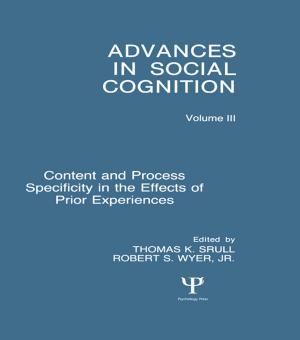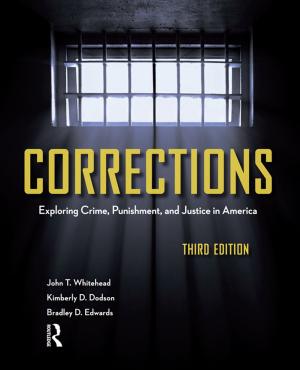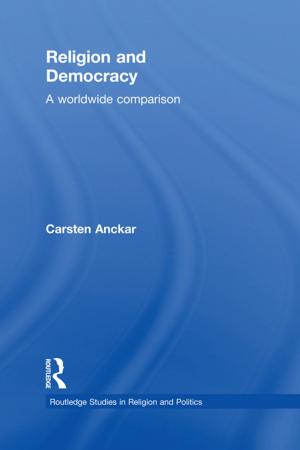Modernist Short Fiction by Women
The Liminal in Katherine Mansfield, Dorothy Richardson, May Sinclair and Virginia Woolf
Fiction & Literature, Short Stories| Author: | Claire Drewery | ISBN: | 9781317094500 |
| Publisher: | Taylor and Francis | Publication: | April 15, 2016 |
| Imprint: | Routledge | Language: | English |
| Author: | Claire Drewery |
| ISBN: | 9781317094500 |
| Publisher: | Taylor and Francis |
| Publication: | April 15, 2016 |
| Imprint: | Routledge |
| Language: | English |
Taking on the neglected issue of the short story's relationship to literary Modernism, Claire Drewery examines works by Katherine Mansfield, Dorothy Richardson, May Sinclair, and Virginia Woolf. Drewery argues that the short story as a genre is preoccupied with transgressing boundaries, and thus offers an ideal platform from which to examine the Modernist fascination with the liminal. Embodying both liberation and restriction, liminal spaces on the one hand enable challenges to traditional cultural and personal identities, while on the other hand they entail the inevitable negative consequences of occupying the position of the outsider: marginality, psychosis, and death. Mansfield, Richardson, Sinclair, and Woolf all exploit this paradox in their short fiction, which typically explores literal and psychological borderline states that are resistant to rational analysis. Thus, their short stories offered these authors an opportunity to represent the borders of unconsciousness and to articulate meaning while also conveying a sense of that which is unsayable. Through their concern with liminality, Drewery shows, these writers contribute significantly to the Modernist aesthetic that interrogates identity, the construction of the self, and the relationship between the individual and society.
Taking on the neglected issue of the short story's relationship to literary Modernism, Claire Drewery examines works by Katherine Mansfield, Dorothy Richardson, May Sinclair, and Virginia Woolf. Drewery argues that the short story as a genre is preoccupied with transgressing boundaries, and thus offers an ideal platform from which to examine the Modernist fascination with the liminal. Embodying both liberation and restriction, liminal spaces on the one hand enable challenges to traditional cultural and personal identities, while on the other hand they entail the inevitable negative consequences of occupying the position of the outsider: marginality, psychosis, and death. Mansfield, Richardson, Sinclair, and Woolf all exploit this paradox in their short fiction, which typically explores literal and psychological borderline states that are resistant to rational analysis. Thus, their short stories offered these authors an opportunity to represent the borders of unconsciousness and to articulate meaning while also conveying a sense of that which is unsayable. Through their concern with liminality, Drewery shows, these writers contribute significantly to the Modernist aesthetic that interrogates identity, the construction of the self, and the relationship between the individual and society.















